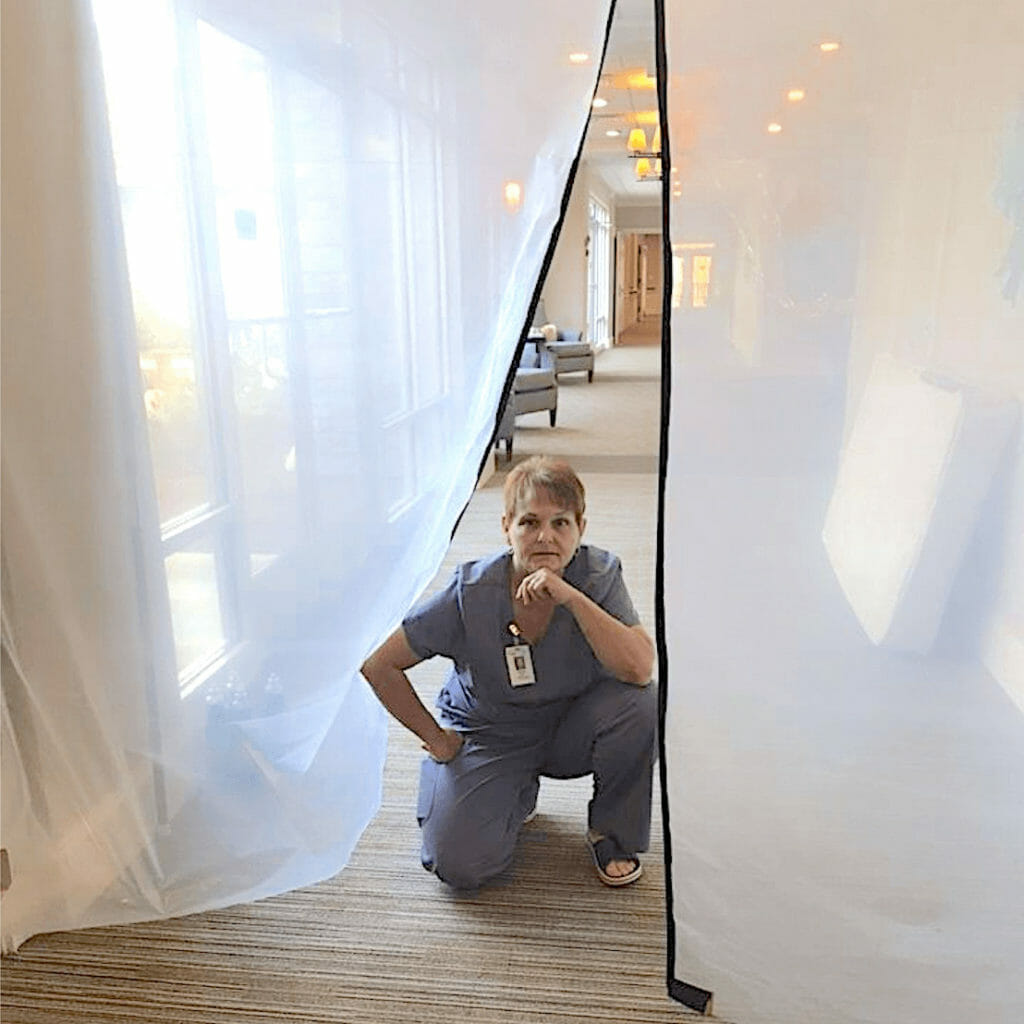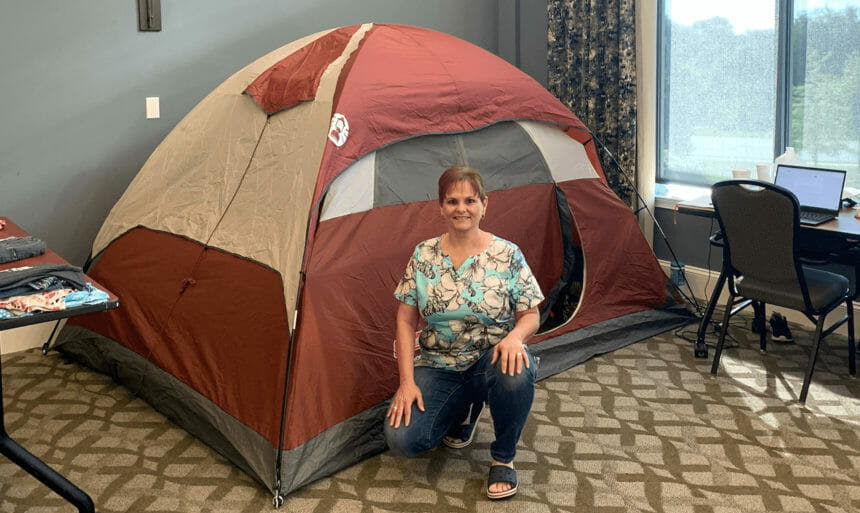Park Springs employees, residents locked into ‘bubble’
After staff members at a Georgia life plan community committed to sheltering in place in late March alongside 600 residents, an executive said they are still going strong.
On March 30, about 60 of the normal 300-person staff at Park Springs life plan community voluntarily began sheltering in place with residents on campus, initially committing to stay through April 30. The goal, said Donna Moore, chief operating officer at Isakson Living, which owns and operates Park Springs, was to ensure that basic services continued for residents, while also reducing potential exposure to COVID-19 from outside the community.
When nursing home deaths from COVID-19 in Seattle made the news in late February, Moore said she quickly realized she could control human traffic into the campus. In early March, Park Springs began screening family members, vendors and employees based on Centers for Disease Control and Prevention recommendations. They turned away anyone who did not pass the screening criteria and had a temperature.
She made the decision to lock down in mid-March when four independent living employees tested positive for the virus.
As the pandemic drags on, the number of employees sheltering with residents has climbed to 73, and most agreed to stay on through the end of May and most recently extended their commitment through June 12, if necessary.

Park Springs sits on a 61-acre campus in Stone Mountain, GA. Most staff members are sheltering on the main campus, where the health services building houses long-term care, skilled nursing and memory care. Staff members have been able to isolate and quarantine according to levels of service, living in furnished apartments, guest suites or villas, or sleeping on air mattresses in tents, as Moore does.
“We do not allow our members from assisted living, memory care and long-term care outside of our bubble,” Moore told McKnight’s Senior Living. “Because our health center and assisted living are the frailest of the frail, we have locked them into the bubble with us. They don’t leave the building.”
Independent living residents have more freedom. Even though they, too, are locked on campus, they can use walking trails and stroll by the lake on site.
“This is not a prison. This is their home,” Moore said, adding that if residents choose to leave campus, they self-quarantine for 14 days upon their return to protect others in the community.
The plan has kept COVID-19 out of the campus, for the most part. Moore said there have been no cases in its long-term care, memory care or assisted living units. The four independent living employees who tested positive have recovered and are back on campus or working remotely. Two residents who left campus for hospital stays both returned with the virus, but isolation and care protocols prevented it from spreading to anyone else on campus.
And Moore said they had one “anomaly” with a 96-year-old hospice patient. Park Springs allowed hospice workers and family members in to see the resident, whose COVID-19 test came back positive just before her death. The virus had no bearing on the woman’s death, but Park Springs limited where visitors traveled and prevented the spread of the illness.
Staff members check on residents throughout the day, monitor nutritional health, host activities that adhere to social distancing guidelines and provide exercise, cooking tutorials and physician updates via its in-house television services, TouchTown. Khurram Khan, M.D., an on-staff geriatric specialist, is using telemedicine visits for both residents and employees, as well as seeing residents when necessary. Khan is not sheltering on site, so he can continue caring for independent living residents as well as those on the main campus.
As for the employees, Moore said they are fed well — she is known for making French toast on Saturday mornings. They also participate in a variety of activities, including karaoke nights, and have access to the on-site fitness center and indoor pool, as well as outdoor spaces.
“What we find keeps their spirits up is how they rely on each other,” Moore said, adding that employees are offered time off when they need a break, but most decline the offer. She said she was humbled after asking staff members to extend their stays on campus for a second time.
“It’s hard in here. We work hard. I may be the COO, but I vacuum, I sweep, I feed meals, do laundry and sanitation,” Moore said. “When we came into the bubble, our titles went out of the bubble. It’s hard work in here. And yet they agreed to stay.”
“When we came into the bubble, our titles went out of the bubble. It’s hard work in here. And yet they agreed to stay.”
Chief Operating Office Donna Moore
Park Springs has started cycling some employees out of campus while bringing others in after a 14-day quarantine and negative COVID-19 test.
She added Park Springs has worked to maintain a sense of normalcy in its assisted living, memory care and long-term care units. Independent living did lose some services, including valet, communal dining and large-group activities.
“Our objective was to fulfill our mission to love and serve our members,” Moore said. “When I started planning this back in February and looking at what was happening on the West Coast and what would happen if it came to Georgia and Park Springs, my goal was, ‘How do I take care of people?’ ”
She said she’s surprised at the attention they are receiving.
“I really just wanted our local news to know I had 60 to 70 heroes on campus putting their lives on hold, sacrificing their family time to come take care of the people in our community,” Moore said.
She said she doesn’t think COVID-19 will go away in 18, 24 or even 36 months without a vaccine. Still, she is planning for the future, developing plans that continue the use of face masks, limited visitation for the most vulnerable residents, and implementing shift work with employees.
“We’re looking at our community holistically and our processes and trying to figure out how do we do housekeeping in a member’s home? How do we do dining where people come back together? How do we ask people to work out in the gym differently than they used to but still maintain safety and infection control protocols?” Moore said. “I don’t want to do another ask, but I know the plan I’m putting in place, the plan we are working on, is to get us out on June 12.”


